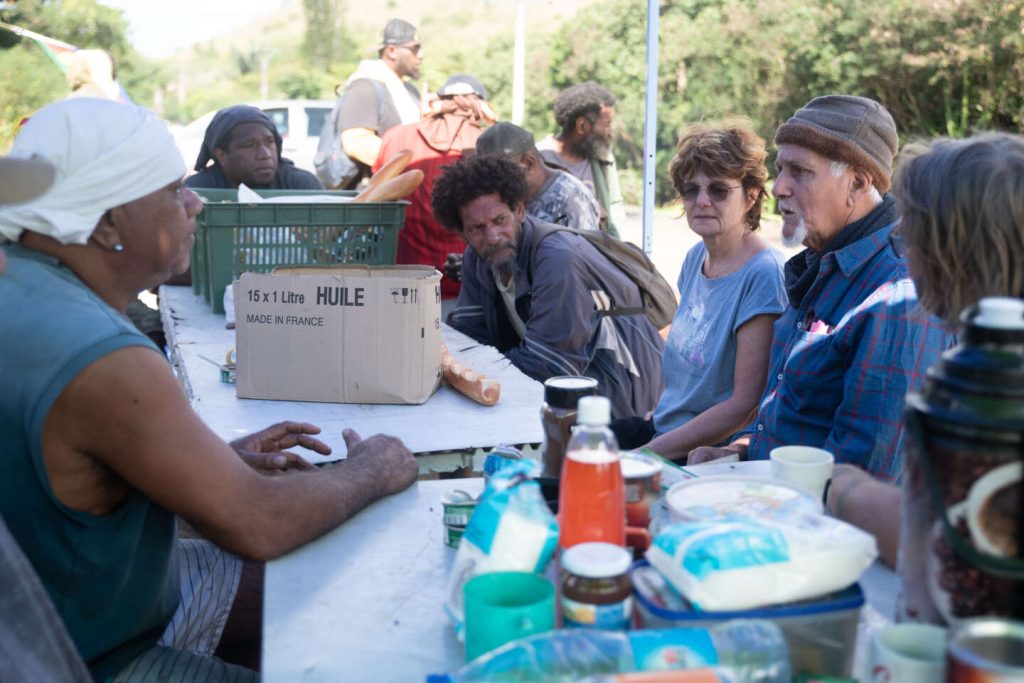In Bourail, a town in New Caledonia, a military helicopter flies overhead on the morning of May 25th, causing concern among the market customers. People wonder if the gendarmes will intervene at the separatist barricade at the northern exit of the town. Residing in the rural area 160 kilometers north of Noumea, local entrepreneur Steave Novella believes it is too early for intervention and that dialogue would be a better approach to avoid violence. With tensions escalating since the uprising on May 13th, the west coast of the Grande Terre is on edge, with closed businesses, schools, and pharmacies creating a calm yet unsettling atmosphere.
Following the visit of French President Emmanuel Macron on May 23rd, the question of whether the insurgency will spread to the rural areas, after affecting the capital Noumea, is on everyone’s minds. The President’s reassurance that he will not force electoral reforms but will resort to a referendum if necessary did not prevent a seventh casualty near Noumea. The reclaiming of barricaded neighborhoods by rioters such as Nouville, Kaméré, Magenta, Espérance, and Tuband is underway amid a war-like climate. The fear of the insurgency spreading is a major concern following Macron’s visit to the territory.
On May 24th, leaving Noumea to reach Bourail was challenging due to barricades set up by independentist militants, causing lengthy detours for drivers. Roads were blocked, with burnt cars and melted metal littering the streets. The destruction of the Le Froid factory, still emitting smoke ten days after the fire, remains a visible symbol of the unrest. In Magenta, a previously cleared barricade reappeared, and the Normandie provincial road remains closed, with checkpoints causing tension in Païta and Dumbéa. Drivers are met with uncertainty as they attempt to navigate the roadblocks.
The atmosphere in Bourail and other rural areas remains tense, with residents wary of potential violence. Steave Novella, an entrepreneur in Bourail, emphasizes the importance of dialogue over confrontation to maintain peace in the region. The memory of the 1984-1988 events in New Caledonia, where the rural areas were a focal point of unrest, looms large as people wonder if history will repeat itself. The ongoing clashes between independentist groups and law enforcement add to the anxiety, with fears of the insurgency escalating beyond control.
As tensions rise and barricades continue to disrupt daily life in New Caledonia, the situation remains volatile. The persistence of unrest, fueled by political uncertainty and historical grievances, raises concerns about the potential for further violence. The closure of businesses and schools, along with the presence of military helicopters and roadblocks, create a sense of unease among residents. The need for dialogue and peaceful resolution to the conflict becomes increasingly urgent as the threat of escalation looms over the region.


